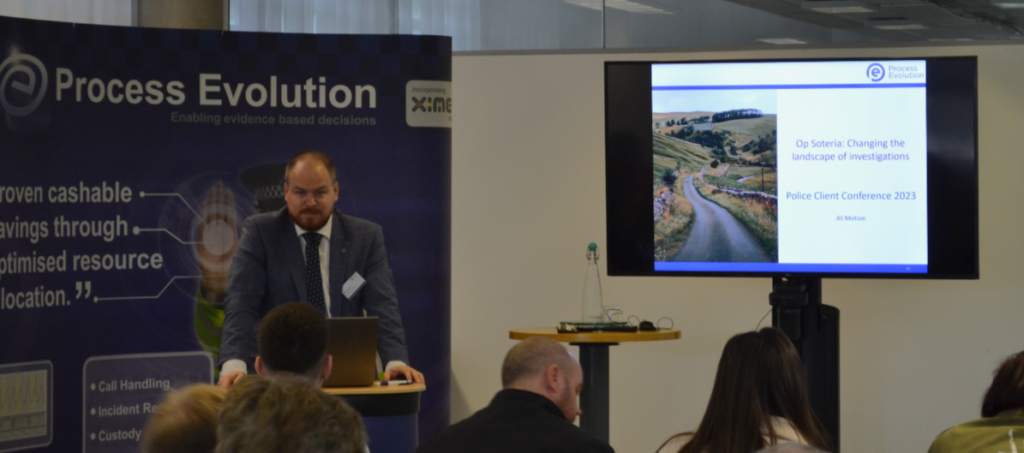;)
Ali again took to the stage, discussing the changes brought about by Operation Soteria Bluestone in the landscape of rape and serious sexual offences (RASSO) investigations. Ali provided a deep dive into the context, recommendations, and the potential impact of Op Soteria, emphasising its transformative effects on investigative processes within RASSO teams.

Understanding Operation Soteria
Operation Soteria Bluestone, a national Home Office-funded initiative, aims to improve the response to rape and serious sexual offences by bringing together police forces, academics, and policy leads. The initiative was prompted by low outcome rates, poor victim satisfaction scores, and a continuous stream of distressing news articles. Op Soteria’s objectives include achieving transformative change in police investigations, procedural justice for all parties involved, and a balanced approach focusing on the alleged offence.
Op Soteria’s Recommendations
Ali highlighted key recommendations from Op Soteria that are reshaping investigative practices, which include:
- Specialist Officers: The requirement for officers with expertise in sexual offending and evidence-informed specialist investigative practices.
- Perpetrator Behaviour Focus: A shift towards greater focus on disrupting known offenders and reducing the disproportionate time spent testing the credibility of a victim’s account.
- Collaboration with Victim Support: Increased collaboration with victim support services, fostering relationships with organisations like Safelink and SARSAS.
- Closer Ties with CPS: Strengthening working relationships with the Crown Prosecution Service (CPS).
- Digital Material Use: Improved utilisation of digital materials in investigations, including the introduction of enhanced services such as digital triage vans.
Applying Changes in the Workload Profiler
Ali provided insights into a simplified RASSO Workload Profiler model, breaking down Rape and Serious Sexual Offence investigation workstreams into 43 process steps with factors like likelihood, staff, and duration. Using this theoretical example Ali demonstrated how changes, such as further training for RASSO officers, offender disruption efforts, closer relationships with the CPS, and the impact of various scenarios, can be modelled systematically. This approach allows for a rapid and thorough understanding of the potential impact of each change.
Implications for Other Policing Functions
The presentation concluded with Ali highlighting the broader implications of Op Soteria’s approach. By applying systematic modelling to scenarios, various policing functions, such as vetting and wider crime investigations, could benefit from this. The emphasis was on providing a structured and evidence-based methodology to analyse and implement changes, offering a glimpse into a more effective and efficient future for policing functions beyond RASSO.
For more insights and updates, stay connected with our ongoing conversations at www.processevolution.co.uk or reach out to us via email at info@processevolution.co.uk